Matthew McDarby has been a long time contributor to SalesPOP!, and is absolutely deserving of being this month’s spotlight contributor. He is the Managing Director of Specialized Sales Systems and founder of United Sales Resources.
His contributions date back to SalesPOP!’s origins, in 2014 when he wrote Simple Rules for Leading Sales Teams in the Social Selling Era, which garnered a significant amount of views considering the magazine’s infancy. He has created numerous pieces of media content, including an expert insight series interview, been a part of a #SalesChats, and filmed a video on Building A Value-Creating Sales Force. He has written half a dozen articles, as well as his own book, The Cadence of Excellence: Key Habits of Effective Sales Managers.
Although we’ve gotten to know Matt’s sales expertise pretty well through his numerous contributions, we wanted to get to know him a little better, and find out more about why he has continued to contribute to SalesPOP! We asked him five key questions about writing for SalesPOP!, his sales career, and advise he has for others in the sales industry.
You’re a top contributor to SalesPOP! What do you enjoy most about contributing to this particular vehicle?
“I love contributing to the SalesPOP! community for two reasons. First, I am in fantastic company with some of the best minds in sales and sales leadership around the world. The roster of contributors you have assembled is first-rate, and there is such a wide range of expertise. I am honored to be one of the top contributors among that group. Second, I know that your audience is hungry for quality content and not necessarily quantity. I know that people are really digging into the content and looking for guidance and ideas that are practical and useful. That means that I have to be on top of my game whenever I contribute content. The bar is set high for contributors to this community, and I really appreciate the support I’ve received along the way from John Golden, from the content management and editorial team, and the marketing team.”
What has kept you so involved with sales throughout your career? What do you really love about it?
“Going back to my college days, I made money selling newspaper subscriptions, fire safety products, and sales was just a way to make some spending money and to help pay my school tuition. I honestly didn’t love selling back in those days, and I think that was because I didn’t have a clue what I was doing. I just read whichever script was in front of me and followed what the hiring manager told me to do. Plus, I was not very good at selling, and my journey to being a really effective seller took maybe seven or eight years.
There were two things that led me to fall in love with the profession. First, I had some great models to follow, and they made successful selling look easier, more human, more real. I realized that all the scripts and tricks and manipulative tactics that my early trainers wanted me to apply felt wrong for a reason. Not only were they wrong for me, they didn’t lead to good results. The old school ways of selling that I was first taught were adversarial, and selling wasn’t any fun.
I also realized with time in the field that selling has a lot in common with athletics and competition. I’ve been competitive all my life, playing sports throughout my childhood and into high school, staying active with competition in club sports and doing crazy things like Crossfit for a couple of years. Bottom line, professional selling keeps me sharp and competitive, and I still love studying sales methodologies, reading how others have succeeded, teaching and coaching others to succeed in their particular sale. I work on my selling skills every day, and there is nothing better than winning a competitive sale, particularly a large one. It’s a huge rush for me.”
A great deal of your career has focused on sales coaching. Why is sales coaching so important, especially in today’s sales landscape?
“I have involved myself deeply in coaching as a way of giving back to the people and the profession I’ve been around for the last couple of decades. The profession has afforded me the chance to meet people from all over the world, and I doubt that I would have had the same experience if I had chosen public relations or a role in operations. I give back because I am grateful.
The fact is classroom training and study will only get you so much better. Only with an effective sales coach can an average seller become a really great one. Sales coaching is especially important today because the modern selling environment can be complex, extremely challenging, and to some, demotivating. Even in the most transactional of sales environments, navigating one’s way to the right customers at the right time can be tricky. In more complex B2B sales, there can be enormous complexity, ranging from the complex decision-making processes of big corporate buyers to navigating one’s way through a high-stakes, competitive sale where there is little differentiation between products and services.
When all the differentiation falls on your shoulders, this job is not only complex but pressure-packed. A coach can be instrumental in helping one to make sense of the complex environments in which we operate and to hold up a mirror to the behaviors that might help or hinder our success as sellers. Without the coaches that I’ve had over the years, there is no way I would be the seller that I am today. It just wouldn’t have happened without great coaches who helped me come to conclusions about myself that I otherwise would not, to help me realize what it would take to be more successful at selling and to try new and different things to get better results. If you are fortunate enough to have a great coach in your professional life, thank them, and hold onto him or her with all that you have!”
For a company that wants to implement effective sales coaching—especially ones in which coaching hasn’t been effective in the past—where would be a good place for them to start?
“A good place to start would be with a small group of your staff who are receptive to coaching. Make the coaching program voluntary at first. Take the learning and success you have with your early coalition of the willing, and apply the learning and the model that works best for a bigger audience in your organization over time. Typically, coaching isn’t effective because managers don’t make time to coach, and when they do coach, they’re not particularly good at it. Give your coaches time to practice together, and if you have the means, use technology like conversation intelligence tools to record and give coaches feedback on their performance before you ask them to coach anyone else. Patience is critical with coaching initiatives, and while you can reasonably expect some immediate lift, you should expect that it will take time for a coaching culture to take root.”
What would you say to a sales manager to get them to start effectively coaching, if they’re not?
“First, I would tell them to figure out how to reserve time for coaching. Block out the time on their calendar just like they would for a recurring meeting with their most important client. Never cancel their coaching time. Reschedule if necessary, but never cancel it.
Then, I would tell them to practice a simple formula. Plan to influence the people you are coaching by considering three questions: What conclusions do I want this salesperson to draw about his or her performance? What questions will I ask to help him or her come to those conclusions? What specific actions would I like them to take to address the issue or opportunity that I helped them to discover? Finally, I’d tell them to practice. No one can master a challenging soft skill without practice. If a sales manager really wants to affect the performance of her or his sales team, practicing at the art and science of coaching is critical.”


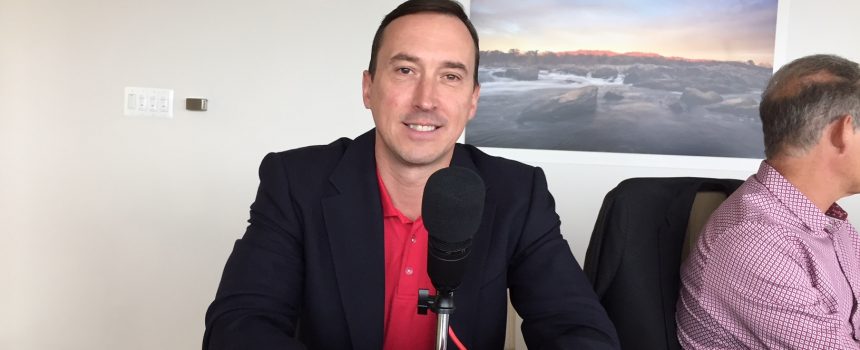


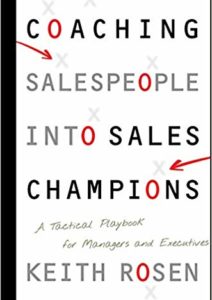
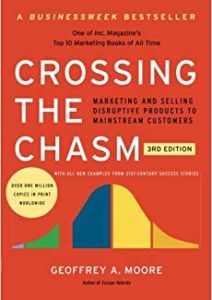

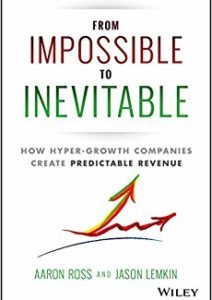
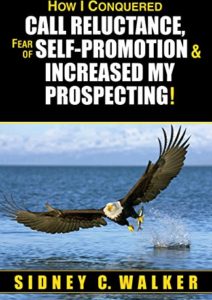
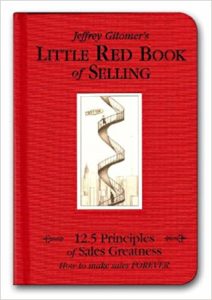
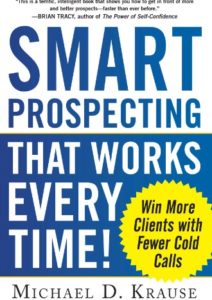
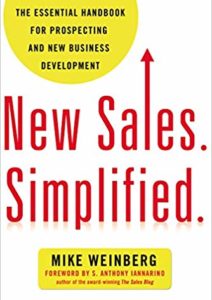
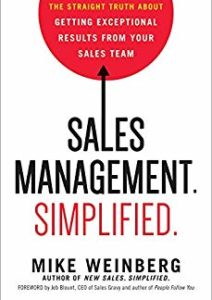
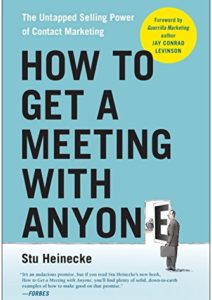







Comments (1)
Great Stuffs